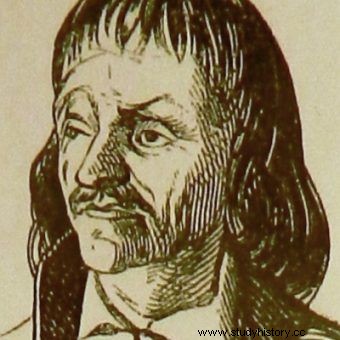
Jakub Szela. Woodcut from 1848.
Jakub Szela (1787-1860) - one of the peasant leaders during the Galician uprising. Jakub Szela was born in the village of Smarzowa near Tarnów. As a young boy, he was probably drafted into the army in 1805. After returning home, he cut off a few of his fingers with an ax. He mutilated himself on purpose so as not to have to return to service. Probably his father disowned him, and the family farm was owned by his brother. Szela got married three times. As a representative of the peasants from his commune, along with another representative, he had a fierce dispute with the Bogusz family.
Jakub Szela would have remained one of the many illiterate peasants who did not survive in the pages of history had it not been for 1846. Then an uprising against serfdom and nobility broke out in Galicia, known as the "Galician robbery" or "Galician slaughter", and Szela became one of its leaders . He began his career by murdering the Bogusz family together with other peasants. The insurgents killed all the "masters" and their officials one by one, but spared the imperial officials and Jews. The bloody performances continued for weeks.
Austria successfully incited the peasants against them. This was the way she wanted to deal with the Polish nobility. Later, Austrian soldiers pacified the rebellious villages. Szela was interned and for two years he was under the care of the starost of Tarnów, which probably saved him from the revenge of the Poles. Later, he was resettled to Bukovina, where he was given 30 morgens, i.e. about 17 hectares of land. He lived among the German settlers and gradually became Germanized. He died in 1860. The figure of Jakub Szela is perceived bipolarly in Polish culture. Either he is treated like a traitor and murderer, or like a peasant hero fighting for the rights of the oppressed.
